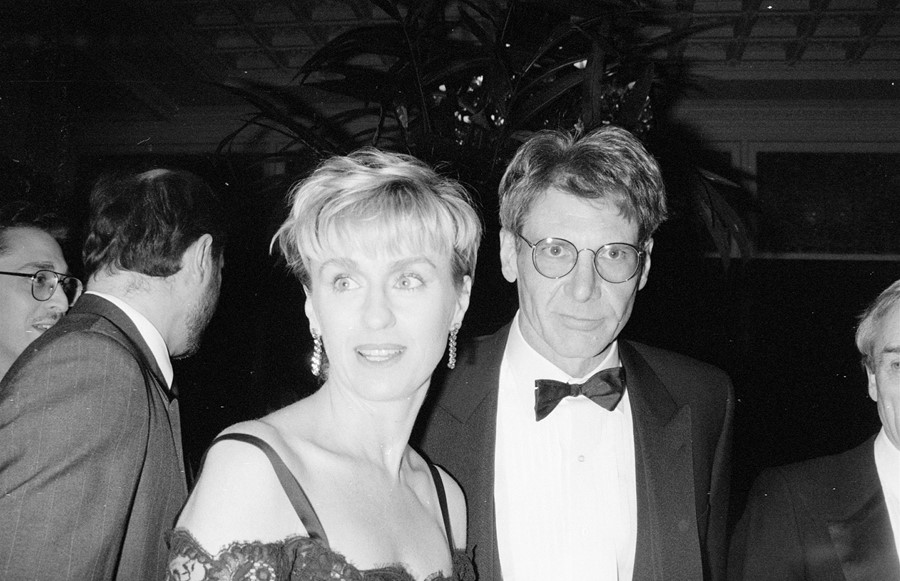We can’t get enough of women’s stories, writes Ana Kinsella – but is there a darker side to that addiction?
I like to think of myself as someone who reads broadly. So rearranging my bookshelves according to genre this month brought with it a rude awakening. My partner stood at the shelves, holding up book after book, most of them featuring a black and white photo of an enigmatic woman staring from the cover. “Fiction or memoir, Ana?” he’d ask.
“Memoir,” I’d reply meekly over and over, and he’d sigh, and the pile of women’s stories grew and grew.
Can I help it? The books that get me most excited, that see me press copies urgently into the palms of my friends, are mostly memoirs, books that tell interesting life stories and generally those of women. The pointless facts garnered from these books are sticky in my mind, just waiting to be deployed in casual conversation or during a pub quiz. Busy Philipps gave birth without any pain relief at all – twice! Claire Tomalin had an affair with Martin Amis when he was 25 and she was 40!
I love these books, and I love them in part because they show me the multiplicity of things a woman can do with her life. For so long, readers have had limited choice when it comes to stories of women’s lives. Today women’s stories crowd bookshop windows and top bestseller charts. Perhaps it’s because we couldn’t get enough of them in the past, and now that we can, their availability is addictive.
My worry, then, is the darker side of that addiction. The unanswered questions that keep compelling me to read more and more. Am I treating the memoir as instruction manual? Or is it more like a yardstick? Reading Susan Sontag’s diaries, I learn that by my age, she was a published genius and a mother. By my age, Tina Brown had edited Tatler and was heading to New York. And don’t get me started on Michelle Obama. Beads of sweat start to appear on my forehead. My clammy palms grip the book I’m reading. What am I doing with my life? What if I never manage to write my own narrative because I’m too busy looking to other women’s as blueprints for success? I think of reading memoir as a self-soothing activity, and yet by the end of an autobiography I’m often as anxious as I’d be if I’d spent my time reading apocalypse dystopia.
When I get what I call ‘yardstick fatigue’, after too much of Sontag’s diaries or Anjelica Huston’s (brilliant) celebrity gossip, I put aside the memoirs and turn instead to autofiction: novels where the novelist’s life or own experience has informed the writing, without resulting in straightforward autobiography. Contemporary autofiction is unstable by design, but took off with Sheila Heti’s How Should a Person Be? and continued through Maggie Nelson’s The Argonauts and Rachel Cusk’s Outline trilogy. Here it doesn’t matter how I compare to the narrator. Here it doesn’t even matter if the narrator is the author or not. You could spend your time trying to pin down the elements of Faye, Cusk’s Cusk-like narrator, that are true-to-life, but it wouldn’t alter your enjoyment of the three excellent novels. I luxuriate in these books for what they are – books, rather than blueprints. I also soak up the books where the lines bleed between biography and essay, thriller and memoir: The Recovering by Leslie Jamieson, on the relationship between authors and alcoholism, or the forthcoming Inheritance by Dani Shapiro, an excellent genealogical whodunnit with all the pace of a thriller.
There’s something about these blurry modes of writing that I find totally absorbing. Perhaps it’s their knottiness, their refusal to stick to one category or genre. While a straightforward memoir leaves me anxiously dreaming of a straightforward narrative of my own, blurrier life stories feel a little more like life to me: complicated and layered, with memory and truthfulness and emotion all competing for first place.
Three almost-memoirs I loved reading:
Tunnel Vision by Kevin Breathnach – a deft and seductive blend of literary criticism and life-writing through essays that take in Berenice Abbott, visual culture, mephedrone and more.
The Folded Clock by Heidi Julavits – reordered diary entries amounting to a revelation of the beautiful and flat inevitability of daily life.
How to Write an Autobiographical Novel by Alexander Chee – questions, answers and wisdom from the life of one of the most skilled authors working right now.
